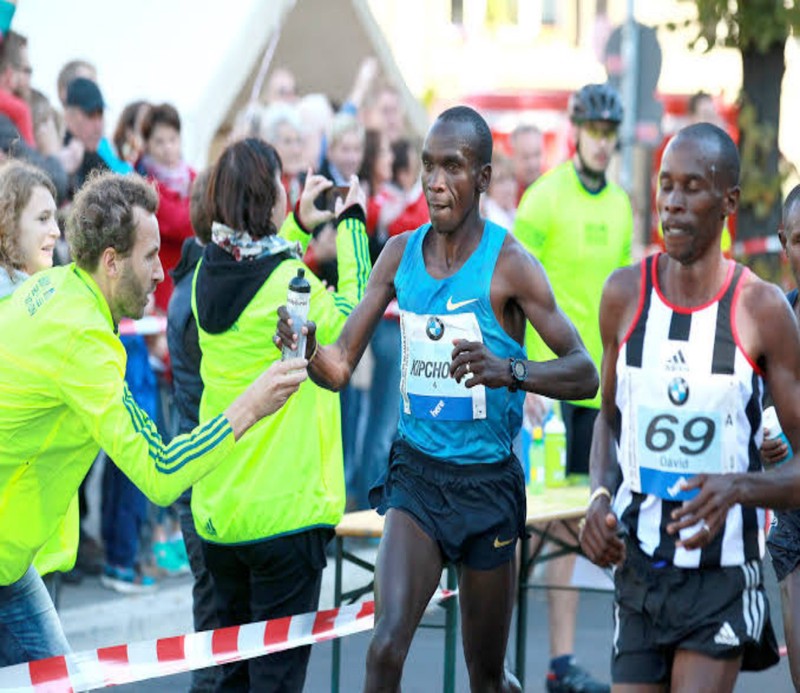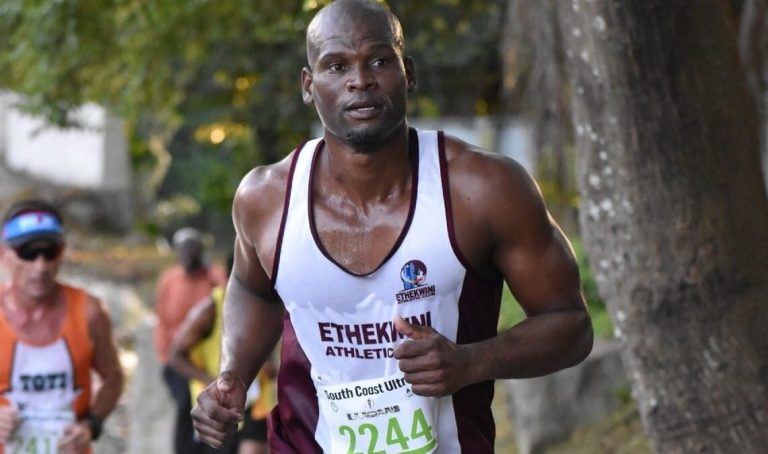Are Marathon Runners Skinny
Marathon runners come in all shapes and sizes, not exclusively skinny. Factors like training, genetics, and diet influence their body composition.
Running a marathon requires physical and mental endurance. Runners focus on strength and stamina, rather than conforming to a specific body type. Embracing diversity in the running community fosters inclusivity and promotes the joy of the sport. Celebrating the dedication and passion of all marathon runners enhances the beauty of the running world.
Each runner’s journey is unique, regardless of their body size or shape. Engaging in long-distance running is a personal choice that transcends societal expectations about body image. Health and happiness should be prioritized over fitting a stereotype in the running community.

Credit: steemit.com
The Myth Of Skinny Marathon Runners
Despite the common belief, marathon runners come in all shapes and sizes. The Myth of Skinny Marathon Runners perpetuates the idea that to be a successful long-distance runner, one must have a particularly slender physique. This misconception overlooks the diversity and physical capabilities of individuals who participate in marathon running. Let’s debunk this myth by exploring the real relationship between body composition and running performance.
The Association Between Weight And Running Performance
Weight does play a role in running performance, but it’s not the sole determinant of success. Physical fitness encompasses various factors, including cardiovascular endurance, muscle strength, and overall health. While excessive body weight can impede speed and endurance, having too little body fat might compromise optimal performance, especially in long-distance running.
The Role Of Body Composition In Marathon Running
Body composition, which includes muscle, bone, and fat percentage, is a more meaningful metric than just weight. Optimal body composition for marathon runners is a balance between lean muscle mass and essential body fat. Muscular strength and endurance are essential for powering through long distances, while a healthy level of body fat provides energy stores for an extended effort. Therefore, marathon runners come in a variety of body shapes and sizes, each with its unique advantages for endurance running.
Factors That Influence Body Composition In Runners
Several factors influence a runner’s body composition, including training regimen, nutrition, genetic predisposition, and overall lifestyle. Marathon runners must fuel their bodies with sufficient nutrients to support their training and recovery. Adequate muscle mass and bone density are crucial for withstanding the physical demands of marathon running. Moreover, genetics can predispose individuals to different body types, affecting their overall body composition and physical capabilities.
The Importance Of Nutrition For Marathon Runners
Fueling The Body For Optimal Performance
Proper intake of nutrient-dense foods fuels marathon runners for peak performance.
Finding The Right Balance Of Macronutrients
A balance of carbohydrates, proteins, and fats is crucial for endurance and muscle repair.
The Role Of Hydration In Performance
Adequate hydration is vital for maintaining energy levels and preventing dehydration.
Training Strategies For Marathon Runners
When it comes to marathon runners, their training strategies play a vital role in shaping their body composition and overall fitness levels. Let’s delve into the key aspects of Training Strategies for Marathon Runners.
The Impact Of Training On Body Composition
- Marathon training leads to improved muscle tone and reduced body fat
- Regular training sessions increase metabolism and help maintain a healthy weight
Balancing Cardiovascular And Strength Training
- Cardiovascular exercises enhance endurance and stamina for long-distance running
- Integrating strength training routines prevents muscle loss and boosts overall performance
Incorporating Cross-training For Overall Fitness
- Mixing various exercises like swimming, cycling, and yoga helps prevent overuse injuries
- Cross-training improves agility, flexibility, and complements running efforts
Credit: www.quora.com
Addressing Mental And Emotional Health In Marathon Running
Addressing Mental and Emotional Health in Marathon Running is crucial for runners to perform at their best. Marathon running involves intense physical training, but it also takes a significant toll on a runner’s mental and emotional well-being. Therefore, it’s essential to explore the psychological impact of weight and body image, promote positive self-image and body acceptance, and understand how to manage stress and the pressure to perform.
The Psychological Impact Of Weight And Body Image
Marathon runners often face psychological challenges related to weight and body image. The pressure to maintain a certain physique can lead to anxiety and self-doubt. A healthy body image is essential for mental and emotional well-being in long-distance running.
Promoting Positive Self-image And Body Acceptance
It’s crucial for marathon runners to focus on promoting positive self-image and body acceptance. Embracing diverse body types and highlighting the strength and endurance of all shapes and sizes can significantly impact a runner’s mental health and overall performance.
Managing Stress And The Pressure To Perform
Managing stress and the pressure to perform is vital for maintaining mental and emotional well-being in marathon running. Developing coping strategies, setting realistic goals, and prioritizing self-care can alleviate the stress associated with performance expectations.
Building A Supportive Community For Runners Of All Sizes
Supportive communities for runners of all sizes are crucial, debunking the myth that marathon runners must be skinny. Embracing diversity and body positivity, these inclusive groups prioritize motivation, encouragement, and a shared love for running, empowering all individuals to pursue their marathon dreams, regardless of their size.
Shattering Stereotypes And Challenging Stigma
When it comes to marathon runners, there is often a misconception that they must be skinny to be successful. However, this stereotype is far from the truth. Runners come in all shapes and sizes, and the key to building a supportive community lies in shattering these stereotypes and challenging the stigma. It is essential to celebrate the diversity and recognize that every body is unique and capable of achieving great things.
Instead of focusing on a runner’s size, we should shift our attention to their dedication, perseverance, and love for the sport. Building a supportive community starts with understanding that marathon running is not exclusive to one body type but is open to anyone who is willing to lace up their shoes and put in the miles.
Creating Inclusive Running Spaces
To build a supportive community for runners of all sizes, it is crucial to create inclusive running spaces. This begins by encouraging and welcoming individuals of various sizes and abilities, without judgment or negativity. Running groups, clubs, and events should prioritize inclusivity and ensure that everyone feels comfortable, supported, and valued.
Inclusive running spaces can be fostered by organizing regular group runs where individuals can connect, share their experiences, and inspire one another. Additionally, organizing workshops and seminars on body positivity, nutrition, and injury prevention can help educate and empower runners to embrace their bodies and prioritize their well-being.
Promoting Body Positivity And Health At Every Size
Body positivity and health should be promoted at every size. Rather than focusing solely on weight loss or achieving a certain physique, the emphasis should be on overall health, well-being, and self-acceptance. Marathon running is a celebration of what our bodies can achieve, regardless of their size or shape.
Achieving and maintaining a healthy lifestyle should be encouraged through balanced nutrition, regular exercise, and self-care. This ensures that runners of all sizes can thrive and enjoy their running journey without feeling pressure to conform to societal expectations.
In summary, building a supportive community for runners of all sizes involves shattering stereotypes and challenging stigma, creating inclusive running spaces, and promoting body positivity and health at every size. By embracing diversity and celebrating the accomplishments of all runners, we can foster an environment that encourages individuals to pursue their running goals, no matter their body type.

Credit: www.nutri-tri.com
Frequently Asked Questions On Are Marathon Runners Skinny
Are Marathon Runners Always Skinny?
Marathon runners come in all shapes and sizes. While some may be naturally thin, others have a more muscular build.
How Do Marathon Runners Stay In Shape?
Marathon runners stay in shape through a combination of regular training, proper nutrition, cross-training, and rest.
Can You Be A Marathon Runner If You’re Not Naturally Skinny?
Absolutely! Being a successful marathon runner is not dependent on being naturally skinny. Dedication and hard work are what truly matter.
Conclusion
In sum, marathon runners come in all shapes and sizes. Weight is not a defining factor of success in long-distance running. What matters most is dedication, training, and overall fitness. It’s important to focus on individual health and performance rather than conforming to a specific body type.
Embrace diversity in the running community!







